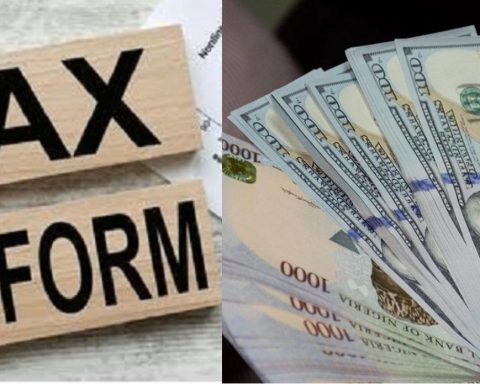Chairman of the Presidential Fiscal Policy and Tax Reform Committee, Mr Taiwo Oyedele, has stated that the newly signed tax laws will not lead to raising more taxes in Nigeria.
Oyedele said the tax laws are “pro-poor” as they are meant to relieve the burden of taxes on low-income earners and small-scale businesses in the country.
Join our WhatsApp ChannelHe stated this during media briefing shortly after the signing ceremony of the new tax laws at the State House, Abuja, on Thursday.
Prime Business Africa reports that President Tinubu on Thursday signed four landmark tax reform bills into law.
The four bills signed into law include the Nigeria Tax Bill (Fair Taxation), Nigeria Tax Administration Bill, Nigeria Revenue Service (Establishment) Bill, and the Joint Revenue Board (Establishment) Bill.
Speaking on the tax laws, Oyedele said: “These reforms are not about raising more taxes.”
According to him, more than one-third of workers in both the private and public sectors will now be completely exempted from paying pay personal income tax known as Pay as you earn (PAYE). He added that over 90% of small and micro businesses will no longer pay corporate income tax.
READ ALSO: Nigerian Govt Says New Tax Laws Take Effect January 1, 2026
“These laws are trying to relieve people of the burden of taxes. These tax laws are now laws are pro-poor,” Oyedele stated. “In particular, more than one-third of workers in both the private and public sectors will now be exempted completely from PAYE. They will not have to pay personal income tax.
“Small businesses, over 90% of small and micro, nano businesses, we no longer have to worry about paying corporate income tax or charging VAT, or even deducting withholding tax or paying PAYE for their employees. What this means is that there will be more money in the hands of the ordinary Nigerian to take care of their daily needs.”
READ ALSO: Tax Reform Bills: Why Authorities Must Integrate Technology In Tax System– Expert
He revealed that the new tax laws will also provide what he called a “zero rate of VAT” on essential consumption. This, according to him, means that Value added tax (VAT) will no longer be charged on food, education, medical and healthcare, transportation, accommodation and housing. “So, we should see prices of those items come down,” he added.
He said the analysis of the Presidential Fiscal Policy and Tax Reform Committee was that these items collectively account for more than 80% of where Nigerians spend their money. “That’s a huge relief for them,” he noted.
Oyedele further stated that the tax laws also have provisions to help improve efficiency in tax collection and transparency in reporting what has been collected.
He emphasised that the level of efficiency in tax collection and transparency will determine how the revenue will be utilized for the good of the people.
“This is really revisiting the social contract between the government and the people. In addition to that, these laws will promote Nigeria in terms of competitiveness. It’s harmonizing the taxes that companies have to pay, reducing the burden of those taxes and removing distortionary tax waivers and incentives.”
While the previous system encouraged tax evasion and what he called wasteful incentives, the new tax laws, according to him, have introduced a “transparent incentive regime,” available to anyone once the conditions are met.
He also pointed out that the laws encourage compliant taxpayers while punishing tax evaders. “The laws make tax evasion now more expensive while simplifying voluntary compliance. This is how we can build a society we can all be proud of,” he added.
The tax expert stressed that no matter how innovative a law may be, it means nothing if it is not properly implemented.
While assuring that the tax reform committee will work hard to ensure the laws are properly implemented, he called for the cooperation of all stakeholders, including the private sector, public sector, civil society, professional bodies, tax consultants and international partners.
Victor Ezeja is a passionate journalist with seven years of experience writing on economy, politics and energy. He holds a Master's degree in Mass Communication.














